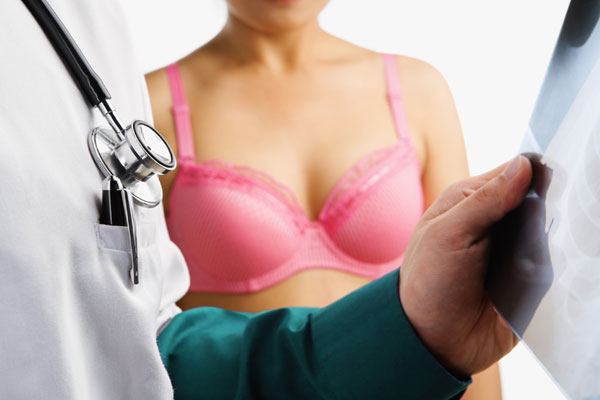Women with Big Firstborn Babies May Have Higher Breast Cancer Risk

Women whose firstborn infants have a high birth weight may have more than double the chances of having breast cancer decades later in life, a new study suggests.
Researchers found that women with big babies — those weighing in the top fifth of babies on a growth chart, or more than 8.25 pounds — had a risk of breast cancer that was 2.5 times higher than that of women with smaller infants.
"We were surprised at how strong this effect was," said study researcher Dr. Radek Bukowski, a professor of obstetrics and gynecology at the University of Texas Medical Branch in Galveston. "We were not expecting a large baby to be that strong a predictor of breast cancer."
The results held true even after researchers took into account factors known to affect a woman's risk of breast cancer, such as her age when she gave birth, her age at her first period and at menopause, body weight and maternal history of breast cancer.
The researchers said they suspect that giving birth to a large baby creates a hormonal environment during pregnancy that seems to favor the development of breast cancer in women almost 40 years later.
The findings are published online today (July 17) in the journal PLoS One.
Pregnancy hormones affect women's health
Get the world’s most fascinating discoveries delivered straight to your inbox.
In the study, researchers looked at two groups of women. In one analysis, they reviewed data from 410 women participating in the Framingham Offspring Birth History Study. They found that 31 participants, or almost 8 percent, were diagnosed with breast cancer, usually in their late 50s or early 60s.
Researchers also evaluated data collected from nearly 24,000 pregnant women participating in a study known as the FASTER trial (First and Second Trimester Evaluation of Risk for Aneuploidy). In this trial, information was gathered regarding the women's health histories and their babies' birth weights, along with the women's levels of three pregnancy hormones: estrogen, anti-estrogen and insulinlike growth factors.
Results showed that women with large firstborn babies had higher levels of estrogen and insulinlike growth factors during pregnancy, and they had lower anti-estrogen levels, compared with women whose babies were smaller. These hormones are thought to be involved in breast cancer development and progression.
"What happens during pregnancy has long-term consequences for the health of a woman," Bukowski said.
The study showed an association, not a cause-and-effect link. Women who have given birth to large firstborn babies don’t need to be alarmed, Bukowski said.
In fact, giving birth to more than one child and breast-feeding babies are known ways to reduce the likelihood of breast cancer. "And eating a healthy diet, getting regular exercise, and maintaining a healthy weight will all decrease risk," he told MyHealthNewsDaily.
Family history important
Although the research suggests that having a heavier infant may increase a woman's risk of breast cancer, and will help researchers in their thinking about breast cancer's development, they won't change the advice or treatments currently given to women, said Dr. Michaela Higgins, a breast cancer specialist at the Massachusetts General Hospital Cancer Center in Boston.
"It's an interesting study, but a small one by breast cancer standards, because it looked at only 410 women," said Higgins, who was not involved in the research. "The research found 31 cancers in those women, which is a drop in the ocean from which to make definitive conclusions," she said.
Besides needing to confirm the findings in a larger study, Higgins said the research failed to consider the women's complete family history of breast cancer. It only looked at maternal history of breast cancer, and didn't look at whether the woman's siblings, aunts or any males in the family (including the father) had breast cancer.
Having children, and especially being pregnant before age 30, is protective against breast cancer, as is breast-feeding infants, Higgins said. But those factors have less of an influence on a woman's breast cancer risk than her family history, she said.
Pass it on: Women who deliver large firstborn infants may have more than double the chances of having breast cancer decades later.
This story was provided by MyHealthNewsDaily, a sister site to LiveScience. Follow MyHealthNewsDaily on Twitter @MyHealth_MHND.Find us on Facebook and Google+.
Cari Nierenberg has been writing about health and wellness topics for online news outlets and print publications for more than two decades. Her work has been published by Live Science, The Washington Post, WebMD, Scientific American, among others. She has a Bachelor of Science degree in nutrition from Cornell University and a Master of Science degree in Nutrition and Communication from Boston University.
